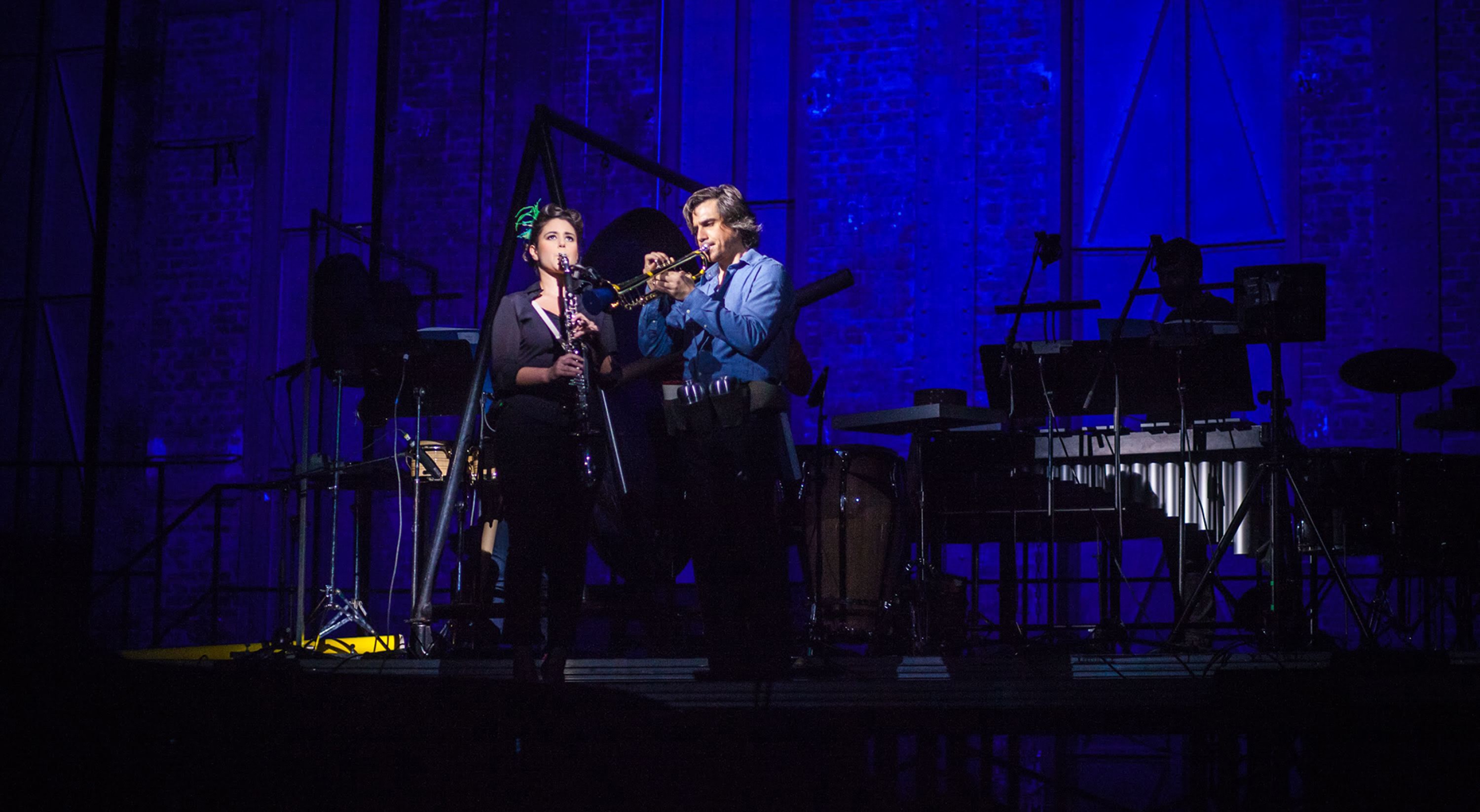Karlheinz Stockhausen
Donnerstag aus Licht
novembernov 15
Music, Libretto,dances, stage action and gestures, Karlheinz Stockhausen
Musical direction, Maxime Pascal
Stage direction, Benjamin Lazar
Soloists
Damien Bigourdan, ténor, Michaël
Pia Davila, soprano, Eva
Damien Pass, basse, Lucifer
Henri Deléger, trompette, Michaël
Iris Zerdoud, cor de basset, Eva
Mathieu Adam, trombone, Lucifer
Emmanuelle Grach, danse, Michaël
Suzanne Meyer, danse, Eva
Jamil Attar, danse, Lucifer
Alphonse Cemin, piano, l’accompagnateur de Michaël
Alice Caubit, Ghislain Roffat, clarinettes, le couple clownesque d’hirondelles
Benoit Coutris, trombone
Maxime Morel, tuba
Computer music, Augustin Muller
Sound Projection, Florent Derex
Vocal conductor, Alain Muller
Sets and costumes, Adeline Caron
Costumes assistant, Jeanne Lébène
Assistant director, Elizabeth Calleo
Dance, Emmanuelle Grach
Video, Yann Chapotel
Video control, Gaëtan Besnard
Lighting, Christophe Naillet
Production management, Myrtille Debièvre and Cédric Joder
Make-up, Mathilde Benmoussa
Make-up and haidressing assistant, Corine Tasso, Carole Ortega
Surittles, Lili Gomond
Sound management, Joan Cunha
Video and lighting, Aurélie Martin
Orchestra management, Marie Bailly, N. N.
Le Balcon, the Conservatoire National Supérieur de Musique et de Danse de Paris, the Philharmonie de Paris and the Festival d’Automne à Paris
are coproducers of the opera.
Adaptation of the 2018 production by the Opéra Comique and Le Balcon.
––––––
Duration: 2 hours plus intermission
Performance in German, supertitles in French
With Thursday from Light, Karlheinz Stockhausen embarked on a vast cycle of seven operas, Licht (Light), ultimately devoting twenty-five years of his life to the venture. Sounds operate in a powerful spiral movement, on the scale of the stars, while human involvement is for rhythm, forming an appeal to stellar mystical harmony.
Thursday from Light may be seen as an autobiography. Using the name of Michael, Stockhausen tells his own story, starting in Act I with his unhappy childhood in Germany, first under the Nazis, and then after the war. His father, a primary school teacher, served in the army and went missing on the front in Hungary; and he lost his mother to euthanasia, the plight of so many mental patients under the Third Reich.
In the opera, Michael, the orphan, has to sit for an entrance exam to enroll at music school. Act II tells the tale of Michael’s journey around the earth, his role being played by the solo trumpet, while the orchestra is a world of its own, in movement and with the comic comings and goings of swallows portrayed by two clarinets. By the end of the seventh and final stage on his peregrinations, Michael has returned, the reappearance being expressed in Act III when invisible choirs sing texts written between the Old and the New Testament. Michael has come to extol the virtues of peace. One year before the world première of Thursday from Light in Milan, Stockhausen was asked what he thought happiness on earth might be. His answer: “A perfect work of music.”
See also
In the same place

